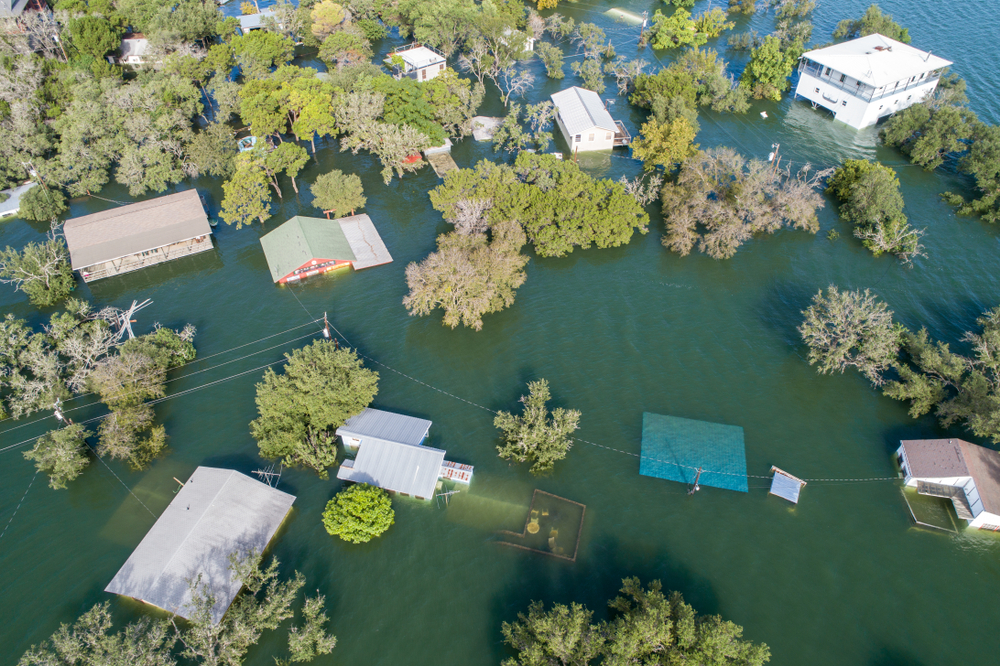Climate Change Causing Extremely High Impact on Home Insurance Coverage Availability

As climate change starts to take its toll on the environment, it is beginning to impact homeowner’s insurance. If you were recently dropped by your insurance company or have seen a dramatic increase in your homeowners premium, you are not alone and there is a good chance that climate change played a role.
While it can be difficult to pinpoint the exact cause of a disaster such as a hurricane or wildfire, the majority of scientists believe there is a significant link between climate change and some of the extreme natural events we have been experiencing. Wildfires are becoming more common and severe as are hurricanes and droughts.
Insurers see climate disasters as a concern
Insurers have to charge a premium that accurately reflects the risk the home presents which can be based on both actual and anticipated losses that can occur in the state where your home is located. “Homeowners in hurricane- and wildfire-prone states pay for insurance coverage which reflects those risks,” said Michael Barry, head of media and public affairs for the Insurance Information Institute in a recent Insurance Journal article.
According to a recent Insurance Regulator State of Climate Risks Survey that was conducted by the Deloitte Center for Financial Services, the majority of U.S. state insurance regulators expect all types of insurance companies’ climate change risks to increase in the future. In fact, over half of the regulators said, “climate change was likely to have a high impact or an extremely high impact on coverage availability and underwriting assumptions.”
As storms, fires and other natural disasters become more common and severe, claims have impacted the profits of insurance companies, forcing them to raise rates in certain areas or stop offering coverage altogether.
California is an excellent example, according to reports, there have been 8,100 wildfires that have burned more than 3.7 million acres this year. There have also been over 7,000 structures destroyed. All of this has made finding homeowners insurance much more difficult to find in areas that have been hit by fires and other disasters.
In addition to sky-rocketing premiums, many insurers are simply no longer writing policies in certain areas. According to the Department of Insurance in California, there has been a 6 percent increase in non-renewals initiated from insurers from 2017 to 2018. There has also been a 10 percent increase in non-renewals in ZIP codes that were affected by fires from 2015 to 2017.
It is not just happening in California, properties in states such as Florida, Louisiana, Mississippi and Texas that have been hit hard by hurricanes in recent years are experiencing the same type of increase of non-renewals.
This has forced some homeowners to turn to insurers of last resort in their state. According to the Insurance Journal article, in the years, 2014 to 2019, over 15,000 homes in medium or extreme fire-risk areas ended up having to join the California Fair Access to Insurance Requirements Plan. This is the insurer of last resort in California and they offer a bare bones policy to homeowners who are unable to get coverage in the private market.
FAIR plans are often much more expensive than a regular policy and offer less robust coverage. In many states, the insurer of last resort policies also come with coverage limits.
What Can Homeowners Do?
Unfortunately, if an insurer decides to non-renew your policy, there is not a lot of recourse to homeowners. You can shop other insurers to see if they can offer coverage or move to the insurer of last resort in your particular state.
The best way to prevent a non-renewal is to talk to your insurer to see what steps you can take to mitigate some of the risk your insurer is concerned about. This can entail cutting down trees close to the house, changing your landscaping, clearing up debris and any other change your insurer requests.
If hurricanes are an issue where you live, replacing your roof with wind resistant materials can help protect your house against damage and help your insurer feel confident about covering your home.
